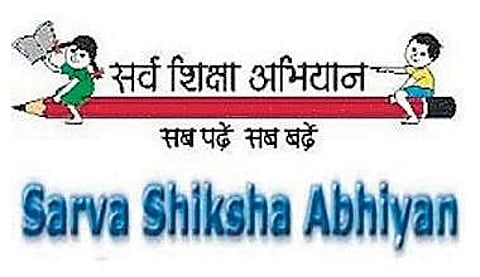

NEW DELHI: A parliamentary panel has strongly criticised the Centre for withholding Sarva Shiksha Abhiyan (SSA) funds from Tamil Nadu, Kerala, and West Bengal for not adopting the PM Shri scheme, calling the move “unjustifiable.”
The Parliamentary Standing Committee on Education, Women, Children, Youth, and Sports, led by Congress leader and Rajya Sabha MP Digvijaya Singh, has recommended the immediate release of pending funds and urged for an “amicable” resolution.
The three states have refused to sign a Memorandum of Understanding (MoU) with the Centre to implement PM Schools for Rising India (PM Shri), a flagship scheme aimed at upgrading over 14,000 schools to align with the National Education Policy (NEP) 2020.
In response, the Centre withheld SSA funds, another key programme intended to achieve universal elementary education as mandated by the 86th Constitutional Amendment, which guarantees free and compulsory education for children aged 6-14.
“The Committee has taken serious note of the non-release of SSA funds to certain states which have not signed MoUs for the implementation of the PM Shri scheme,” said the report submitted on Wednesday.
The total pending funds amount to over Rs 1,000 crore for West Bengal, Rs 859.63 crore for Kerala, and Rs 2,152 crore for Tamil Nadu.
The panel dismissed the Centre’s justification that SSA funds were linked to NEP goals through the PM Shri scheme. “The SSA predates PM Shri and is intended to help states achieve the targets of the Right to Education Act. The RTE is a law passed by Parliament and confers education as a fundamental right to every child. The SSA, as a scheme that enforces the fundamental right-based RTE, cannot be bypassed by the NEP, which was an executive policy statement,” the report stated.
It further noted that Kerala, Tamil Nadu, and West Bengal have significantly higher Gross Enrolment Ratios (GER) than the national average, yet delays in SSA funding have hampered school infrastructure improvements, teacher training, and student support.
“These states have been compelled to use their own funds to pay salaries to teachers and resource personnel due to delays in the release of central allocations,” the report added.
For the 2024-25 financial year, Tamil Nadu was allocated Rs 3,586 crore under SSA, with Rs 2,152 crore expected from the central government. Despite repeated requests, the funds have not been released, impacting teachers’ salaries, RTE reimbursements, and student transportation in remote areas.
“The Committee further observes that withholding the funds under SSA to states for not entering into an MoU for separate schemes like PM Shri is not justifiable,” it said.
The report recommended that the Union Education Ministry immediately release pending SSA funds to prevent disruptions in salaries, teacher training, and infrastructure maintenance. It also urged the ministry to ensure that states are not penalised for rejecting the NEP 2020 or PM Shri scheme.
The panel proposed an objective, need-based funding model with automated quarterly disbursals aligned with school-year cycles to ensure timely payments for teachers and infrastructure upgrades.
It also acknowledged concerns raised by Tamil Nadu, Kerala, and West Bengal regarding transparency in PM Shri fund allocation and disbursement delays.
To address these, the Committee advised the Centre to engage with these states and allow them the flexibility to adopt their own education models while still receiving infrastructure and resource allocations.
“Besides, continued and adequate funding must be ensured under schemes like Samagra Shiksha Abhiyan (SSA) for states such as Tamil Nadu, West Bengal, and Kerala,” the panel stated.
The report further recommended that the Education Ministry establish transparent funding mechanisms and make real-time utilisation reports for PM Shri funds publicly accessible to prevent disparities and ensure accountability.
Under the PM Shri scheme, more than 14,500 schools are to be upgraded into model institutions showcasing NEP 2020 implementation. So far, 11,920 schools have been selected from 32 states and Union Territories, including those under NCERT, Kendriya Vidyalaya, and Navodaya Vidyalaya networks.